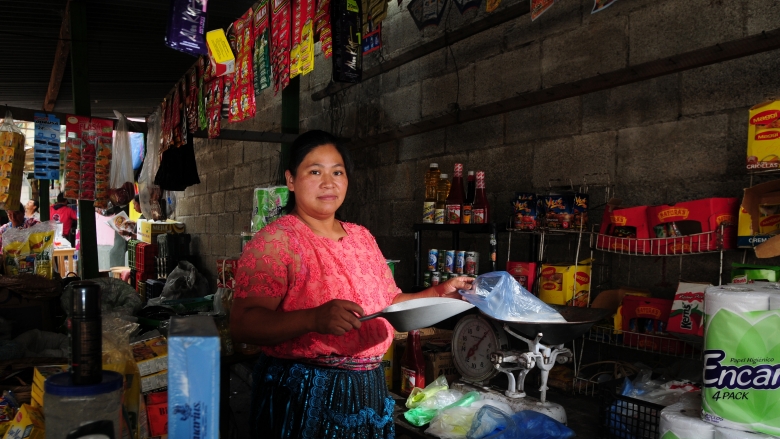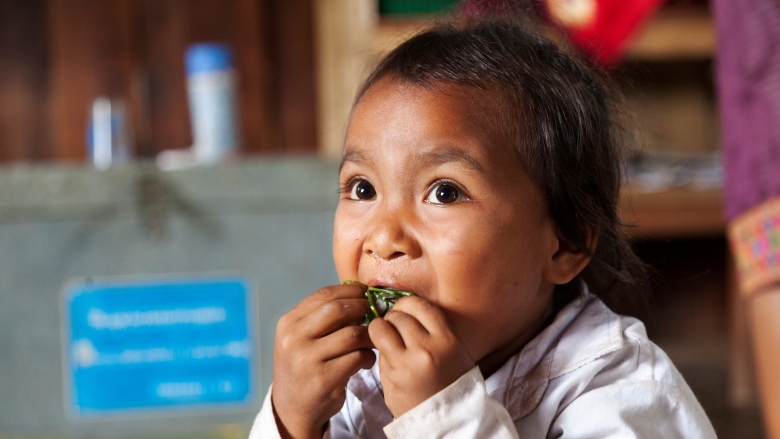Our vision is a world where food systems deliver healthy people, a healthy planet and healthy economies.
FoodSystems 2030 is an Umbrella Multi-Donor Trust Fund that seeks to help countries transform their food systems and progress towards the Sustainable Development Goals, particularly zero poverty and hunger by 2030. It leverages the fiancing and experience of the World Bank to mainstream and embed a holistic food systems approach to create healthy people, a healthy planet and healthy economies. Food Systems 2030 helps countries rethink and transform their food systems from farm to fork, delivering improved livelihoods and affordable, sustainable and nutritious diets for all. The Multi-Donor Trust Fund represents a challenge to the status quo of how our food is produced and consumed. Working with countries, Food Systems 2030 promotes new ways of doing business – recognizing that current business as usual practices are no longer fit for purpose.
FoodSystems 2030 provides advice and analytical products to underpin policy options, funds to pilot innovative approaches, and information to build support for change in different country contexts. It engages with the private sector by supporting the design, piloting and de-risking of innovative public-private partnerships that advance development and climate goals.

Photo credit: Chor Sokunthea, World Bank
FY24 achievements include:
- Expanded and refined the Global Food and Nutrition Security Dashboard, particularly in the Advance section which provides insights on emerging risks to global food and nutrition security and potential measures to help address these challenges.
- Strengthened analytical advice to produce, disseminate, analyze and apply data to decisions in the agriculture sector in 32 countries and onboarded an additional 7-8 countries; conducted 14 methodological validation surveys.
- With the International Fund for Agricultural Development (IFAD), applied the 3FS tool-prototype (Financial Flows into Food Systems Model) in Kenya, Niger, and Peru through partnerships under the UN Food Systems Summit Finance Hub and with IFAD; five more countries are in the pipeline.
- Continued strategic dialogue and engagements on One Health with key partners including a dedicated session on financing One Health at the 2024 World One Health Congress in South Africa and support to the Central Asia One Health Framework for Action; established a first of its kind Community of Practice among the Quadripartite on the return on investments for One Health – there is now a common community and plan going forward into 2024 and 2025.
- Co-convened the Global Alliance for Food Security with the G7 Presidency
- Provided technical assistance to 25 countries to develop national Preparedness Plans for Food and Nutrition Security Crises with 22 technical workshops held; 12 Plans drafted and two Plans formally launched and are being implemented in Somalia and Yemen.
- Accelerated country and regional programs on One Health, including a regional grant to Africa West as a One Health hotspot region; supported analytical work on One Health in India, where Ministries of Agriculture and Health are working together – translating into operations that support India’s National One Health Mission.
- Published Recipe for a Livable Planet: Achieving Net Zero Emissions in the Agrifood System and disseminated the report to a wide range of audiences through both a media launch and an event launch (with over 34,000 views on YouTube on World Bank Live.). The report was viewed over 28,000 times with 15,700+ downloads.
- Developed and disseminated 17 publicly available, timely global Food Security Updates, with a total of 442,508 visits and 44,922 downloads.
- Applied the Agribusiness Diagnostic Tool to 11 African countries. The diagnostic identified the need for deep dives into regional policy and regional requirements in 1) fertilizers West Africa and 2) seeds East Africa. The team has produced a synthesis report and full country diagnostics as an output for this activity.
- Repurposing Agricultural Support: Initiated upstream analytics in 10 countries to repurpose agricultural support; completed analyses in 8 countries, contributing to 40 agricultural public expenditure reviews to date
- Livestock Sector Support: Invested US$1.4 billion in livestock operations, supporting 16 World Bank projects to monitor greenhouse gas (GHG) reduction effects; provided grants and technical support to 12 national and regional activities.
- Food Loss and Waste Diagnostics: Produced country diagnostics in Bangladesh and Nepal to inform climate strategies and Nationally Determined Contributions (NDCs).
FoodSystems 2030 informs policy debates and discussions at key policy moments such as the United Nations Climate Change Conferences and meetings of Agriculture Ministers. This builds on the World Bank’s existing relationships and partnerships with UN Agencies, the Global Landscapes Forum, the Food and Land-use Coalition, One CGIAR, the Just Rural Transition, World Resources Institute and others.

Photo credit: Maria Fleischmann, World Bank
What change is needed?
Food systems that holistically address human, planetary, and economic health through innovations, incentives, institutions, investments, and information.
How do we add value to the change process?
- By generating simultaneous co-benefits across all three goals.
- By raising catalytic funding to leverage public financing.
- By de-risking private financing for investments.
- By re-orienting consumer food spending.
- By enabling effective institutions.
- By building evidence on incentives, innovations and financing.
Food Systems 2030 Theory of Change
Our global food system generates US$12 trillion in hidden social, economic and environmental costs each year, and is unfit to provide healthy diets to 10 billion people by 2050 without massively increasing the sector’s carbon footprint and generating further natural capital loss.
Yet, the food system can also be a vital agent of change, facilitating a shift towards more sustainable practices to build climate resilience, improve nutrition and human capital, and lift farmers who work in the food system out of poverty.
The Food Systems 2030 Multi-Donor Umbrella Trust Fund will support this transformative change and address the hidden costs. It will utilize a systems approach that contributes to the program outcomes of healthy people by providing sufficient and nutritious diets, a healthy planet by reducing greenhouse gas emissions and fostering nature-based solutions, and a healthy economy by increasing investments in sustainable food systems and being a driver of inclusive growth. These program outcomes are instrumental for achieving Paris commitments on climate, as well as the UN Sustainable Development Goals, particularly SDG 1—ending poverty, and SDG 2—zero hunger.
The approach of Food Systems 2030 is achieved through the five “I’s”—innovation, incentives, institutions, investment, and information—applied to strategic themes that are crucial to deliver on food systems transformation: healthy and sustainable diets; public policy and expenditures; digital agriculture, data and innovations; agribusiness; and climate-smart agriculture.
Food Systems 2030 supports the strategic themes by investing in upstream analytics and evidence, providing country-specific entry points in the transformation, and creating business models and packages to influence existing investments and stimulate private sector financing. These interventions lead to interrelated intermediate outcomes of strengthened engagement: with countries to support policy reforms and strengthen country capacity to enable change towards a resilient food system; with development partners to create champions for change and global action; with the private sector to increase access and adoption of innovative technologies and private sector finance. These outcomes are possible because we are able to integrate the latest knowledge and data to shape food systems strategies and investments and allow for unique support packages tailored to country needs and political economy.
These innovative, catalytic, and leveraging outcomes thereby help countries build sustainable food systems and are vital to achieve the Food Systems 2030 program outcomes of healthy people, healthy planet and healthy economy.
The critical assumptions underlying Food Systems 2030’s Theory of Change are the following: (i) countries are committed to food systems transformation to help them achieve their development goals including for climate, for affordability and access to healthy diets, and for provide a living wages; (ii) there is demand from countries for upstream analytics and evidence to support their policy and institutional reforms; (iii) Supported governments show willingness to take the proposed reform agenda to test, implement and scale up reforms; and (iv) The World Bank is able to leverage its own resources, and collaborate with other stakeholders and partners, to support systemic actions for food systems transformation.
